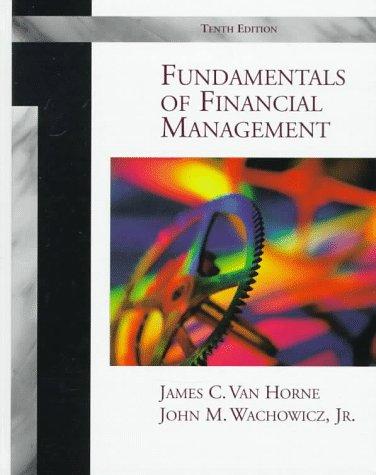

Cargill's Cost of Capital. Cargill is generally considered to be the largest privately held company in the world. Headquartered in Minneapolis, Minnesota, the company has been averaging sales of over $111 billion per year over the past five-year period. Although the company does not have publicly traded shares, it is still extremely important for it to calculate its weighted average cost of capital properly in order to make rational decisions on new investment proposals. Assuming a risk-free rate of 4.30%, an effective tax rate of 40%, and a market risk premium of 6.50%, estimate the weighted average cost of capital first for companies A and B, and then make a "guesstimate" of what you believe a comparable WACC would be for Cargill. As shown in the popup window, if we take the approach that the beta for Cargill has to pick up all the incremental information, the beta would then fall between say 0.80 and 1.00. If the higher degree of international sales was interpreted as increasing risk, beta would be on the higher end; yet being a commodity firm in the current market, its beta would rarely surpass 1.0. Thus, an estimate of 0.88 beta for Cargill sounds reasonable. 0 Company sales Company's beta Credit rating Weighted average cost of debt Debt to total capital International sales/Sales Company A Company B $10 billion $43 billion 0.84 0.68 A 6.885% 7.145% 36% 43% 11% 34% Cargill $111 billion 0.88 AA 6.825% 30% 54% Cargill's Cost of Capital. Cargill is generally considered to be the largest privately held company in the world. Headquartered in Minneapolis, Minnesota, the company has been averaging sales of over $111 billion per year over the past five-year period. Although the company does not have publicly traded shares, it is still extremely important for it to calculate its weighted average cost of capital properly in order to make rational decisions on new investment proposals. Assuming a risk-free rate of 4.30%, an effective tax rate of 40%, and a market risk premium of 6.50%, estimate the weighted average cost of capital first for companies A and B, and then make a "guesstimate" of what you believe a comparable WACC would be for Cargill. As shown in the popup window, if we take the approach that the beta for Cargill has to pick up all the incremental information, the beta would then fall between say 0.80 and 1.00. If the higher degree of international sales was interpreted as increasing risk, beta would be on the higher end; yet being a commodity firm in the current market, its beta would rarely surpass 1.0. Thus, an estimate of 0.88 beta for Cargill sounds reasonable. 0 Company sales Company's beta Credit rating Weighted average cost of debt Debt to total capital International sales/Sales Company A Company B $10 billion $43 billion 0.84 0.68 A 6.885% 7.145% 36% 43% 11% 34% Cargill $111 billion 0.88 AA 6.825% 30% 54%








